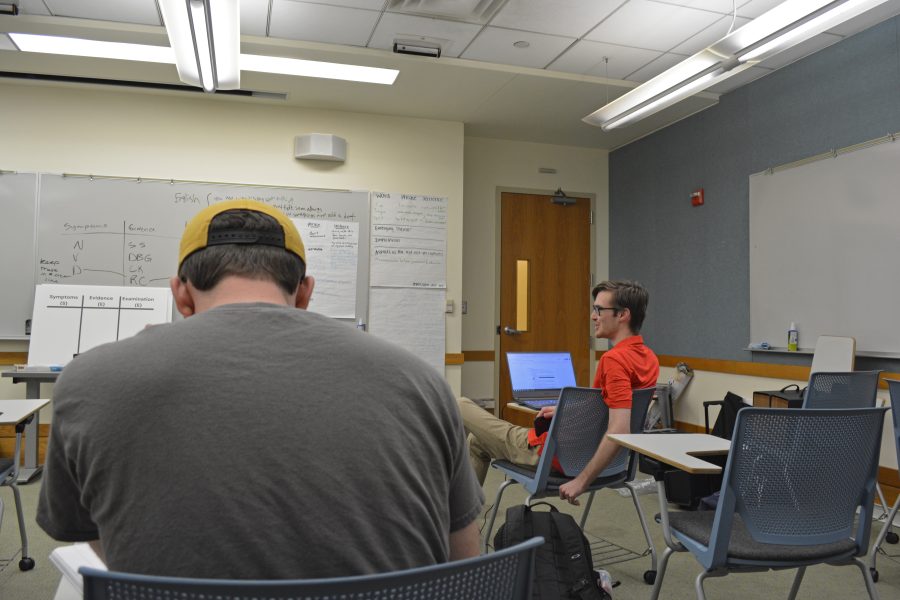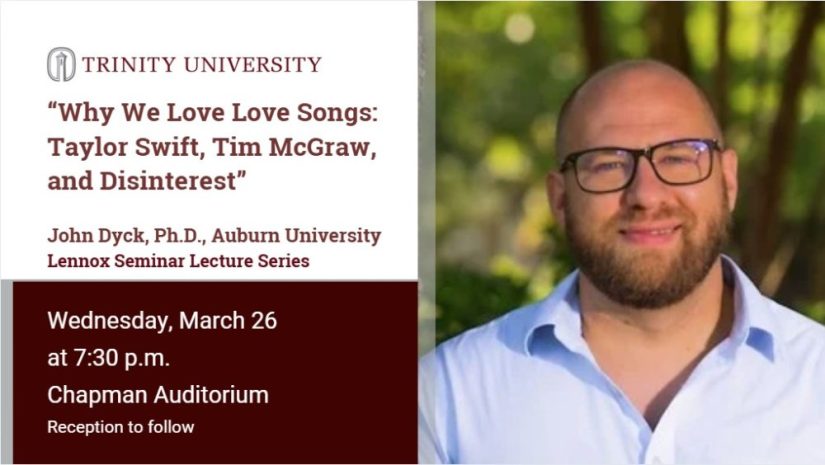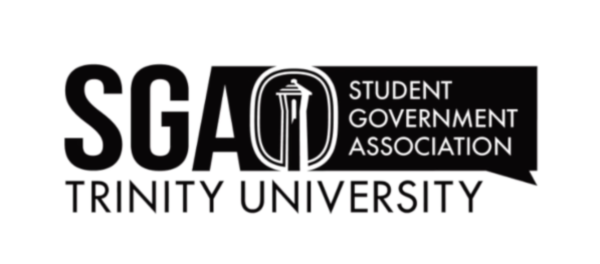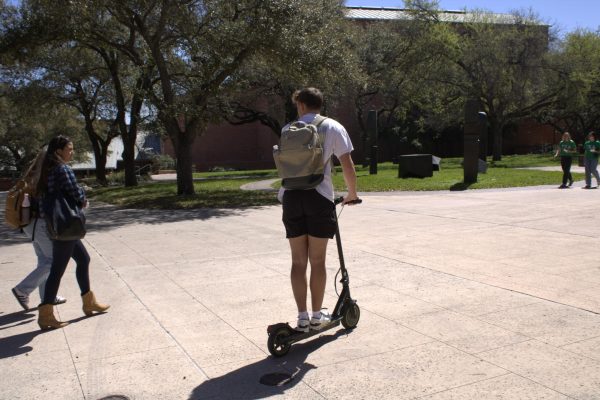Trinity Mock Trial to achieve national ranking for the first time in the club’s history
This untraditional competitive team is representing Trinity even without a coach
Mock Trial meeting in Northrup to prepare for competition
While students were going their separate ways for spring break, 12 students from Trinity’s Mock Trial team traveled to Fort Worth to represent Trinity at the Open Round Championship Series (ORCS). This is a record for Trinity’s Mock Trial team, and it’s the first time the team has ever competed at ORCS in its seven-year history. After three days of hard work and argumentation, the team did not advance to nationals, but they will be nationally ranked for the first time in history.
The team did not leave empty-handed, because Evan Engelhaupt, senior applied physics major and Mock Trial competition coordinator, received an award for outstanding attorney.
“By advancing to ORCS we’re setting a precedent that [establishes] that we can advance,” Engelhaupt said. “So I’m happy with where we’ve gone and all that I’ve done with the activity. Regardless of how we [did] I’m happy. … I don’t have any regrets.”
Despite many challenges these past two years including COVID restrictions and cutting ties with their former coach, the team has worked hard to perform at a high level. Michael Dixon, senior physics and psychology double-major and president of Mock Trial, emphasized that the officer board has more responsibilities than usual without a formal coach.
“Because we’re uncoached, a lot of what we’ve been doing is setting things up so we don’t lose members, or lose that competitive edge this year,” Dixon said. “We’ve been doing a lot of the roles a coach would typically do going into a competition. Training new members, working with people on materials, and now, finding new coaches.”
With at least six hours of practice every week during the year, Mock Trial is a diverse, close-knit group of friends. Paloma Díaz-Minshew, junior English and global Latinx studies major emphasized that the current seniors have been integral in guiding the team to be prepared for the season.
“They [senior members] have put in so much work this year to carry this team when we needed it. They carry a wealth of knowledge with them, and without them, we would not be where we are right now,” Díaz-Minshew said.
Mock Trial is a young organization at Trinity, so maintaining an alumni network and a support system will help maintain the team’s longevity for the future. Engelhaupt explained the importance of building a strong support network for the team.
“We want to get an alumni network going,” Engelhaupt said. “The more people hear about us doing what we do and succeeding at it, the more they see the value of Mock Trial, and the more receptive they are to help us.”
Trinity’s Mock Trial team isn’t a traditional competitive sports team, but the skills gained in leadership, public speaking and time management make the activity beneficial for students in the way traditional clubs and sports do. Díaz-Minshew emphasized the value of supporting nontraditional clubs in a college setting.
“College is really that last stage in life where you’re able to pursue passions without added pressure on you to turn it into something that is marketable and supporting that in any way is really important,” Díaz-Minshew said.
*Sarah Fisher, news editor of the Trinitonian, is the social chair of Mock Trial.
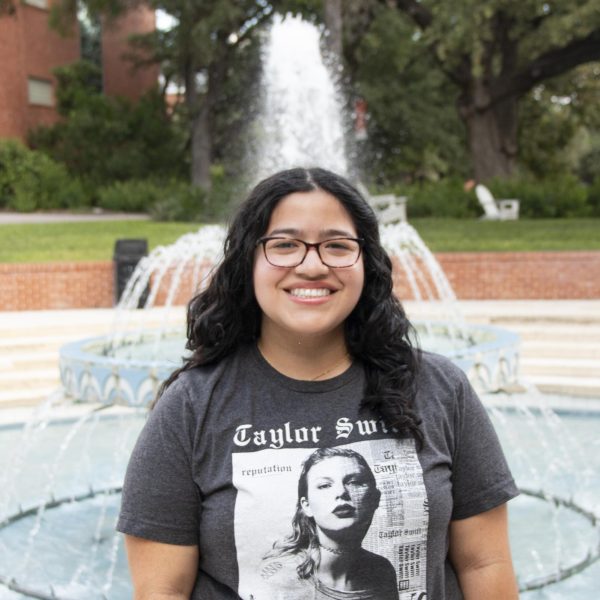
Hi! My name is Monica Martinez (she/her), and I’m a Junior human resource management and communication double major. I am a news reporter for the Trinitonian...
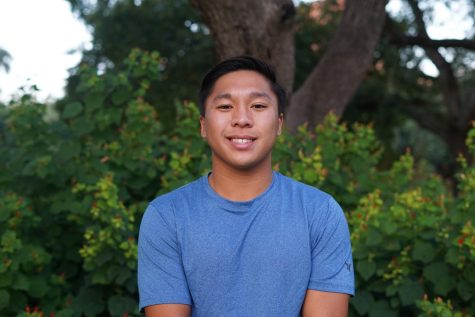
I am a senior photographer from Houston, Texas majoring in Biology on the pre-PA track. I love sports photography and just being able to capture a moment...

